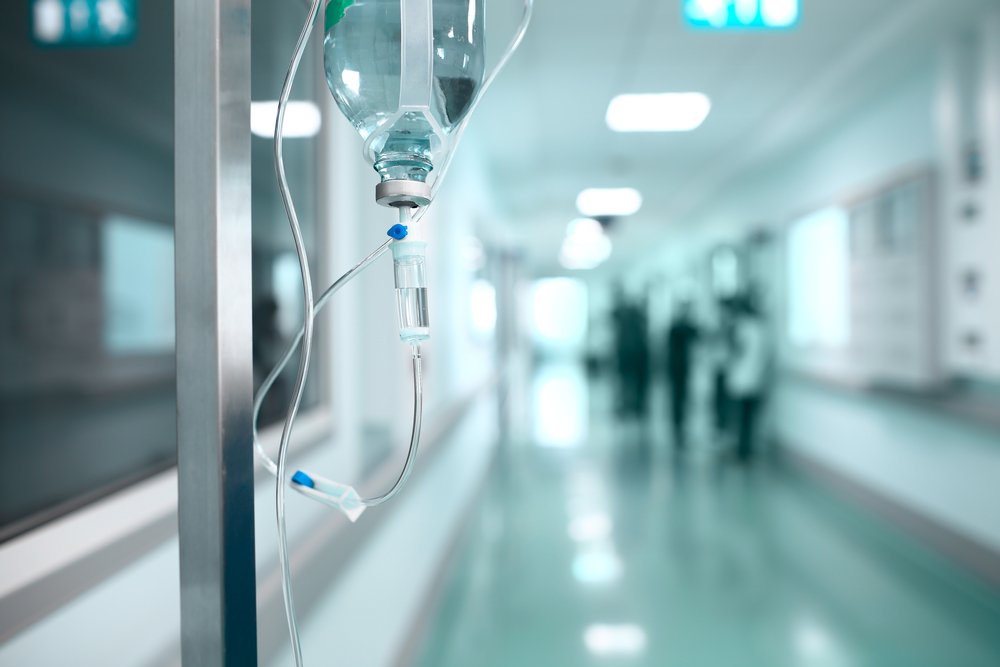Life as a Caregiver Is Worthy of a Reality TV Show
Written by |

When driving to doctors’ appointments for my son Cullen, we often listen to “The Danny Bonaduce & Sarah Morning Show.” They make us laugh, and we enjoy the topics.
Last week, we were headed to an appointment when the show asked listeners to “call in and share which profession you would like to see receive its own reality TV treatment.” A caller suggested one about caregivers with a focus on what they go through every day. I’m not a paid caregiver, but it got me thinking about what it would be like to participate in a reality show about caring for my son.
It certainly would offer viewers a roller coaster of emotions. As the saying goes, “If you don’t like the weather, wait five minutes and it will change.” This has often applied to my life as a caregiver. My son was 8 when diagnosed with pulmonary hypertension, and his brother is only 13 months younger. During Cullen’s PH days, my husband and I were working full time, managing “normal” day-to-day responsibilities, and always focused on this incurable, life-threatening illness our son had. There was rarely a dull moment.
A typical roller coaster day usually started with evaluating Cullen in the morning. Was he feeling well enough to tackle the day or would his dad or I have to call off work again? Would he need to be taken to a doctor or the hospital? While deciding, medications would be administered and ice packs crammed into his little backpack to keep his continuous intravenous Flolan cartridge cold.
If he was well enough to attend school, it didn’t relieve me of caregiving. I conveniently worked at the parish office across the parking lot from his school. Frequently, I had to rush over to troubleshoot a loud Flolan pump alarm. It often was just a kink in the line, but a few times the issues were worrisome, like his central line suddenly falling out of his chest or a leak in the tubing.
Many times, Cullen would develop chronic migraines caused by vasodilators, medications that dilate blood vessels. I would bring him to my work office, where he would curl up in a chair and close his eyes. Sometimes he would recover and return to school, but more often than not, I ended up taking him home.
The awesome days were the ones when he would make it through a full day of school without issue. But there were too many to count that turned into stressful, scary days. An ambulance was called for Cullen a few times, but usually he was stable enough that I could handle the situation. I would rush out of work and drive him to the hospital as he complained of chest pains and difficulty breathing.
There were so many emergency room visits, hospital admissions, procedures and surgeries, and frightening rapid response teams called to Cullen’s bedside. I was there for every single one, and the situations became more emotional as his PH progressed. The recovery for both my son and me after these emergencies would have felt uncomfortable in front of a camera. Whether at the hospital or at home, I often found a place to cry privately. I wouldn’t have welcomed an audience during those times.
Watching the nighttime routine at home would have made many teary-eyed. His dad and I mixed his Flolan every evening. Changing Cullen’s central line dressing was often painful for him and something I wish I didn’t have to witness.
Sleepless nights were common. I often sat at Cullen’s bedside and rubbed his back, sang him songs, and prayed until he was comfortable enough to fall asleep. I would get up multiple times a night to make sure he was still breathing. Our bedrooms shared a wall, and I listened for a knock alerting me that he needed help. I’m a light sleeper to this day for that reason.
If a camera crew were filming us in 2014, the real action would have been the day of his dry run in July and his successful heart and double-lung transplant in August. There would have been no shortage of drama during recovery, and adding to the season’s events would be our family divided. I lived in California for four months with Cullen so he could remain close to his transplant hospital for follow-up care. His dad and brother returned home to Washington state so they could return to work and school, respectively.
Cullen is almost six years post-transplant, and experiences caring for him could still provide many episodes of entertainment.
The life of a caregiver would make a promising reality show, but I wouldn’t want to be the subject. It’s too raw and real for me to share beyond the columns I write. As a caregiver, would you take part in a reality show?
***
Note: Pulmonary Hypertension News is strictly a news and information website about the disease. It does not provide medical advice, diagnosis, or treatment. This content is not intended to be a substitute for professional medical advice, diagnosis, or treatment. Always seek the advice of your physician or other qualified health provider with any questions you may have regarding a medical condition. Never disregard professional medical advice or delay in seeking it because of something you have read on this website. The opinions expressed in this column are not those of Pulmonary Hypertension News or its parent company, Bionews, and are intended to spark discussion about issues pertaining to pulmonary hypertension.




Leave a comment
Fill in the required fields to post. Your email address will not be published.